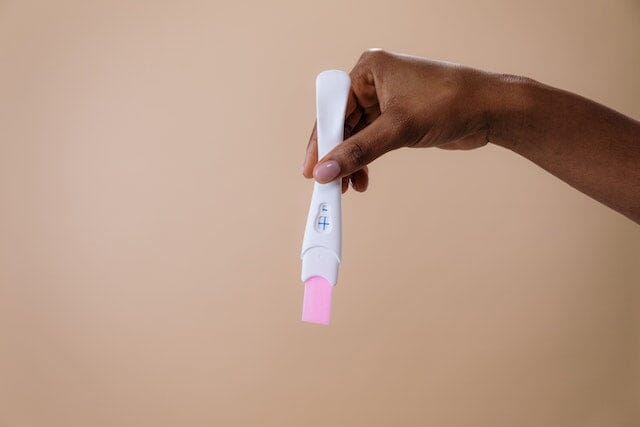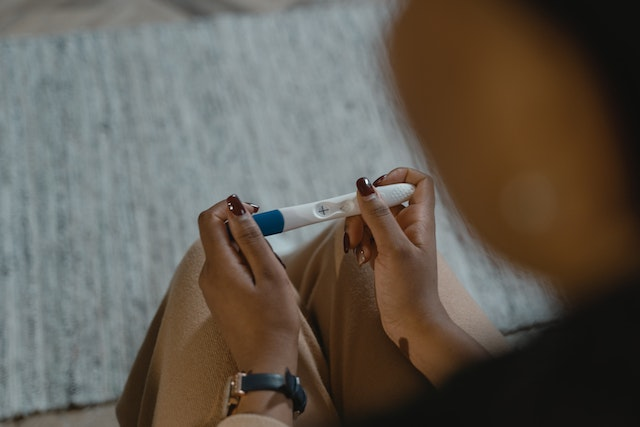
How to know when to take pregnancy test after missed period
When tracking if you are pregnant, it is important to know exactly when to take the pregnancy test after a missed period. You should take a pregnancy test at 5-6 days after a missed period. This will ensure that the results provided by the pregnancy test are accurate.
You can also take a pregnancy test 1-2 weeks after intercourse, which can also provide information about whether you may have successfully conceived. You need to keep a close track of your cycle, if you want to know exactly when to take pregnancy test after missed period events.
Ideally, it is important to take a pregnancy test within a week after a missed period so that you can understand whether other conditions may be impacting your missed period. You should also get a blood test performed for vitals, PCOS, fertility, etc. if you regularly experience missed periods.
Knowing the reasons behind a missed period
It is important to know that there could be several reasons behind a missed period and that pregnancy is just one of them. You should get a test performed to know with clarity whether you are pregnant nonetheless.
You can also get a pregnancy test done at a clinic if you want to know with maximum certainty whether you are pregnant. Through the blood test, you can get a better idea of whether you might be pregnant. At-home urine tests are also reliable in showing accurate results when you think you might be pregnant and you take a pregnancy test.
Pregnancy
One of the main reasons why you may have missed your period is successful conception. Pregnancy is a key reason why you may miss your period and you can get a test done to learn more. A home pregnancy test can be used to determine whether you are pregnant.
Sudden changes in weight
If you have lost or gained a significant amount of weight suddenly, then there is a risk of a missed period. You can also find that your periods may vary in flow, length, and intensity. These changes can happen if the body experiences multiple changes.
Strenuous exercising
Extended periods of strenuous exercising can lead to significant physical stress on the body, which could impact the natural menstrual cycle for a woman. You can lower the intensity of your diet and exercising routine, and ensure that you're in synchronization with what your body needs.
Extended periods of stress
Extended periods of mental and emotional stress can sometimes be the cause behind a missed period. This can be checked if there are stressful events occurring at the time of a missed period.
Polycystic ovary syndrome (PCOS)
Women with PCOS can experience delays in periods, as well as missed periods frequently. You need to visit a gynaecologist who can test for PCOS and prescribe the right medication. You can also make lifestyle changes to help improve your health.
Core deficiencies
If you have an inherent deficiency in iron, magnesium, vitamins, and other nutrients, this may have an impact on your natural menstrual cycle. This may lead to missed periods over time, especially if the deficiency is critical.
Changes in body composition
If there are any changes in your body composition, such as losing muscle or bone density, then this may have an impact on your cycle. You should get a complete blood test done to understand whether this is one of the main reasons behind your periods being delayed.
Pregnancy and your missed period
When conception occurs, your body produces hormones that prevent further ovulation from happening. The shedding of the uterine lining stops as well, which indicates that your periods have stopped.
You won't have another period until your baby is born, which is why a missed period is a good indicator that you may be pregnant. You may also experience a range of other symptoms, such as frequently peeing, fatigue, morning sickness, etc.
You should get a pregnancy test done if you have missed your period. If you have also experienced spotting, then you should immediately visit a gynaecologist to understand the next important steps.
Understanding how a pregnancy test works
It's important to get a basic sense of how a pregnancy test works so that you are prepared. You can also know how to take a pregnancy test better, when you understand how they work. A home pregnancy test can be a great way to check if your body is producing the right hormone.
If you're pregnant, your body will start to develop more hCG in the body, which will begin to build up once the fertilized egg implants in your uterus. This generally occurs at about 6-12 days after conception.
A pregnancy test is designed to check for the levels of hCG in the body through the urine. The test is highly reliable in checking for the hormone levels, as at home pregnancy tests are available everywhere conveniently.
When asking yourself how should I take a pregnancy test, it is important to know that you can take the test within 10 days of conception itself. You can also take a pregnancy test from the first day of a missed period as well.

How to use a pregnancy test
When you have missed a period, you should wait for a few days until you use a pregnancy test. This is because it takes the body within 6-12 days for it to release the hormone which can be detected by the pregnancy test.
You can purchase the pregnancy test from the chemist, follow the instructions, and place a few drops of urine on the testing pad area. You need to wait for a few minutes for the testing strip to measure whether hCG is present, after which it can showcase the results within the strip.
What's important to note is that you can take multiple tests leading up to a future period, if you don't think that you might be pregnant. You can continue to test yourself a few days after a missed period, especially if you haven't been tracking your dates closely.

What are some of the major signs that you should watch for?
When it comes to pregnancy and checking if you are pregnant, there are several signs that you can track to know with higher certainty whether you are pregnant. You can keep a track of these signs over time, to know if you are pregnant. You should also know these signs if you want to know when to take a pregnancy test after a missed period.
You can experience a range of signs such as bloating, cramping, spotting, mood swings, and dizziness. These can be early signs of successful pregnancy, and you can take the right action based on what your pregnancy test results are.
It is also important to get a pregnancy test when you suspect that you may be pregnant but have gotten a negative test result. You can wait for a few days and get retested to know if you are pregnant. Retesting will be able to provide you with more accurate information in a timely manner.
Top tips on optimizing your chance of pregnancy
There are strategies and tips that you can follow to improve your chances of pregnancy.
Tracking your periods through an app
You can track your periods through a period tracker app, which you can download on your phone. This can help in tracking your ovulation days, as well as whether you have missed your period.
Focusing on ovulation days
You can track your ovulation days and focus on conception on those days. This can help improve your chances of pregnancy as these are the main dates when the body is prepared for pregnancy.
Improving your diet and health
Your diet plays a key role in your overall health, which is why you should transition towards a healthier diet. You can manage your health issues better when you have a better diet, and can improve your overall health outcomes.
Enhancing your lifestyle
The objective of changing your lifestyle is for stress reduction. You can improve your bodily output if you are in a calmer and less anxious state of mind. You can bring a sense of natural balance back to your body with meditation, mindfulness, yoga, etc.

Exercise and routine changes
You can improve your overall health and lifestyle with the right exercise routines. You can opt for walks, yoga, and other physical activities, especially if you are dealing with PCOD and other conditions that can impact fertility.
Fertility testing
Fertility testing on a regular basis should be performed when you are trying to get pregnant. This can help you understand your body's natural production of fertility hormones, namely follicle-stimulating hormone (FSH) and luteinizing hormone (LH).
Complete health check-ups
You should get comprehensive health tests done regularly, specifically checking for any deficiencies that could be impacting fertility. If you are deficient in any specific vitamin or mineral, then you should start supplementing immediately.
*Medical Disclaimer - The following information is for educational purposes only. No information provided on this website, including text, graphic, and images, are intended as substitutes for professional medical advice. Please consult with your doctor about specific medical advice pertaining to your condition(s).






